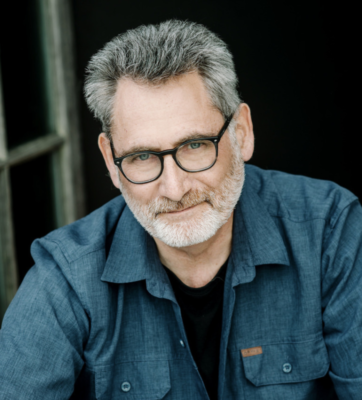NOTICE: NO MORE SUBMISSIONS ARE BEING ACCEPTED FOR THE 2024 NEW WORKS SERIES – AS WE HAVE REACHED OUR MAXIMUM OF 20 SCRIPTS
(WE HAVE RECEIVED OVER 50 AND THEY CONTINUE TO COME IN)
The Mike Sockol
NEW WORKS SERIES
Produced by Darren Nye
See your work performed in a live Reading!
And possibly be selected for a Full Production Run!
The Mike Sockol New Works Series, has two tracks:
- Competition for a Full Production Run: held January through May, focuses on finding quality original, completed plays, that are unpublished and not yet fully produced by a community or professional theatre.
- Plays in Development Workshops/Readings: held when time permits, for scripts that were submitted for this Track, or plays that were submitted for the Competition for a Full Production Run but were not in the top rankings, may be offered a workshop, allowing the playwright to further develop their scripts. Other scripts in development, may also be selected. See Below.
1. Competition for a Full Production Run
Villagers Theatre in Somerset NJ (Franklin Township) will be accepting submissions for the next season of the Mike Sockol New Works Series, beginning on January 1 2025 and ending on January 14 2025. Selected plays will be presented as seated Play Readings, or Staged Readings, in our Zaidi Black Box from approximately February to June 2025.
|
Competition Submission Criteria
|
Important – Playwright Info !!!!!
The body of the email that contains the attached script MUST BE FORMATTED EXACTLY AS FOLLOWS:
|
Due to time and budgetary restraints, a maximum of 3 plays will be selected for a Competition Reading. Plays are selected based on a review system conducted by volunteers who read and score the plays.
Prior to submitting your play to the Competition track, you should have already gone through several basic “readings” and “workshops” with your material. Your script should be final or close to it.
Darren Nye will Produce the selected Full Production show, which would be performed in the Black Box likely at the beginning or end of our theatre season (dates TBD). He can also Direct the production, or the Playwright may suggest a Director and Crew. We urge the Playwright NOT to request directing their own play. Darren will define the budget with the Villagers Board, and make arrangements for media promotion and ticket sales.
Schedule of Full Production Runs from Competition Submissions & Mike Sockol
- 2022-2023 Villagers Season = Winning Play from the January 2022 Competition Submission period, “Track” by Angel J. Rivas, was produced as a Full Production Run in May 2023.
- 2023-2024 Villagers Season = Winning Play from the January 2023 Competition Submission period, “Guard Bitches” by Molly Kate Babos, is being produced as a Full Production Run in May 2024.
- 2024-2025 Villagers Season = As per Mike Sockol’s wishes, Villagers will produce Mike’s “Pets (and Their Humans)”. The Top Play from the January 2024 Competition Submission period, will be included with the January 2025 Top Scoring Plays for consideration for a Full Production Run next season.
- 2025-2026 Villagers Season = Winning Play from the January 2025 Competition Submission period – will be produced this season.
- 2026-2027 Villagers Season = Winning Play from the January 2026 Competition Submission period – will be produced this season.
- 2027-2028 Villagers Season =As per Mike Sockol’s wishes, Villagers will produce Mike’s “Horseshoes”. The Top Play from the January 2027 Competition Submission period, will be included with the January 2028 Top Scoring Plays for consideration for a Full Production Run next season.
- 2028-2029 Villagers Season = Winning Play from the January 2028 Competition Submission period – will be produced this season.
- 2029-2030 Villagers Season = Winning Play from the January 2029 Competition Submission period – will be produced this season.
- 2030-2031 Villagers Season = Winning Play from the January 2030 Competition Submission period – will be produced this season.
No Full Production Runs from Competition Submissions in 2025 or 2028…
As per Mike Sockol’s wishes: In 2025, Villagers will produce Mike’s “Pets (and Their Humans)” and in 2028 they will produce his “Horseshoes” play, instead of selecting a Competition Submission script from those submitted in January 2024 or January 2027.
2. Plays in Development Workshops / Readings
Submission Criteria is the same as the Competition Submission Criteria above.
Due to time and budgetary restraints, possibly only 3 to a maximum of 6 plays will be selected for a Workshop/Reading. It is up to the Villagers Play Workshop Producer (Paul Hufker workshops@villagerstheatre.org), to determine which plays will be selected for a Workshop.
Selected plays can be presented as seated Play Readings, a Workshop of some sort, or Staged Readings, as determined by the Workshop Producer. They will be performed in our Zaidi Black Box during our spring and summer months, into fall (Dates To Be Determined).
Paul Hufker will conduct the workshop, and will coordinate casting and rehearsals, prior to an actual Villagers Workshop Reading.
Villagers will promote your Development Workshop/Reading online, so you can potentially have an audience. We do not charge for readings but donations are always accepted.
What are the different types of “Readings”?
- A “Play Reading” is the simplest form of a reading, which just involves actors sitting in chairs, facing the audience, with scripts on music stands. The performance is done through just their voices. They may not even look at the other actors. Stage Directions are read by a Stage Manager. There is no set, no costumes, no props, no lighting and no sound effects. This is just actors speaking – it’s like a radio program. It involves listening – it’s not visual. This method is used when a playwright mostly wants to HEAR the play. If the playwright has not yet held a Play Reading with a full script, this is where they should typically start.
- A “Workshop” may be similar to a Staged Reading, and may sometimes include set elements and potential sound effects. But the name implies that the playwright is still working on the material. The script is not in its final form, and may not be appropriate to present to a full audience. The “Competition for a Full Production Run” track is NOT intended to be a Workshop.
- A “Staged Reading” is a step above. Staged Readings do not have a real set, or costumes or lighting. However, their intention is to “show” the potential of a production with both actor voices and visual elements. Props may signify potential set areas, and simple furniture may be used. Actors will have movement (blocking) and interaction on stage. But there is little line memorization and they will have scripts in hand. Still, actors should be familiar with the script and perform with not just emotion, but physicality. This method is used when a playwright or theatre wants to both HEAR and SEE what a production could look like. Audience members should feel like they are watching a play.
Goals of the New Works Series
-
- To provide playwrights and theatres with an opportunity to glimpse the performance potential of their play.
- To provide alternative performance opportunities for local actors and directors.
- Expose our audience to new works.
Playwrights chosen for Readings in either the Competition or Workshop tracks, are required to attend the readings and to participate in talk-backs with the audience. If your play is selected for a Reading or Workshop, you will work with the Producer Darren Nye to select a Director, Cast and Crew (if necessary). You can also request that Darren handle these details – if time permits.
About Mike Sockol
 |
Our New Works Series is named after Mike Sockol, who passed away on October 1st 2022. He was dedicated to giving back to the community and the arts.
Mike’s pride and passion for New Works has allowed aspiring and accomplished writers to feel heard. We respectfully continue his legacy with “Mike Sockol’s New Works Series”, which was established in 2021 with Mike before his passing, to encourage writers to always follow their passions.
|
